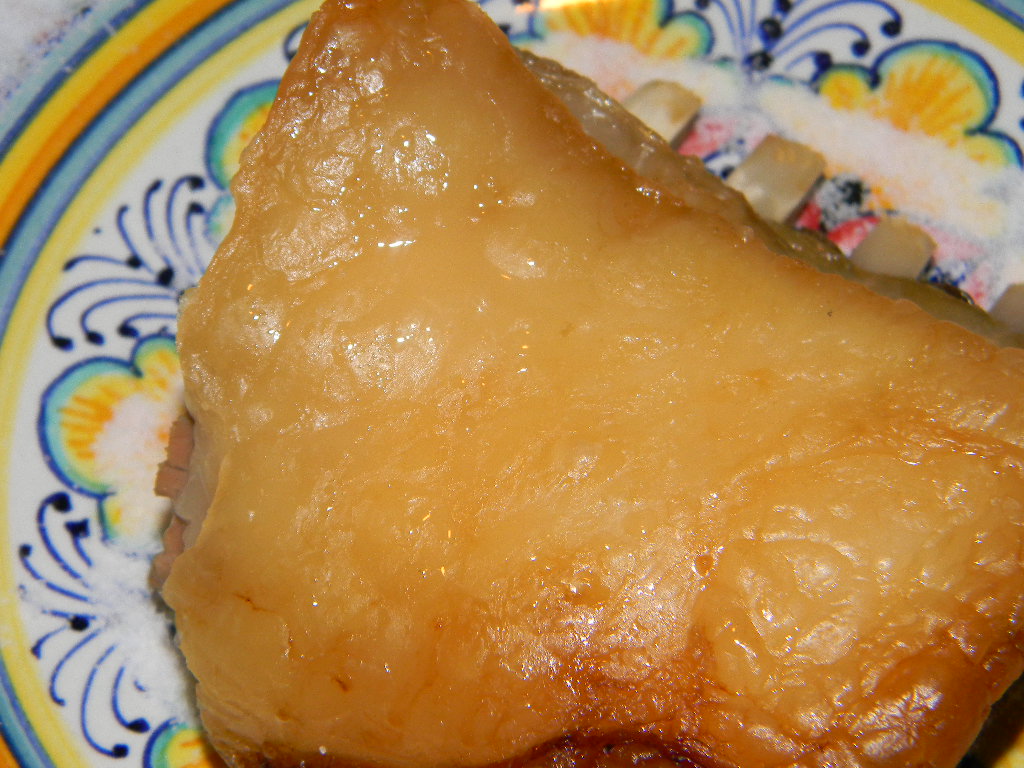So I am back on the high protein version of carnivore diet. I have been a strict carnivore for over three years now, and generally it has really helped with my Crohn's disease, more than any other diet I have tried.
For most of that I was ketogenic, meaning I'd eat about 60 to 75% fat by calorie, and the rest protein by calorie. And that worked pretty well except that I had problems with intestinal cramping and diarrhea from high fat. I was also eating salt then which also caused the same problems. I gave up salt last fall, and felt better immediately.
Then about a month ago I decided to go with a high protein version of carnivore. I basically flipped the ratio around. So I was eating only 40% fat and the rest protein. I felt much better right away. However my weight seems to have gone up a little bit. Around 5 lb.
I have also started being much more active. I now walk a mile daily and do substantial yard maintenance on the weekend. So I don't really understand the physiology of what is happening, how I could have fewer calories and more activity, but yet
higher weight. All that I can figure is that protein is acting more like sugar, so it's not just calories in calories out. Regardless, I feel a lot better on the high protein version of carnivore and I'm going to continue.
I've been curious, so I have also been testing my blood glucose throughout the day. And strangely while on the high fat diet recently, my blood glucose was running over a 100mg/dl. But now that I've gone back to high protein, it is staying under a hundred, fasting and postprandial. So that seems to be better as well.
With the extra five pounds, I am now 16% body fat instead of 14. Still "athlete" range for a woman my age, so I guess that's good. Wish it was lower, but calorie restriction is just not making it any lower. I guess that's just where it is going to be! I am at 17.5 BMI.
One other strange thing is that menses is three weeks late. This happened last summer as well. It basically skipped a month, around the same time last year. Maybe something to do with the heat?
In other news, I did some research on intramuscular fat. That is "marbling," the fat within the muscles, in contrast to
intermuscular fat, which is outside of the muscle bundles.
Intramuscular fat is what gives meat tenderness and juiciness. It is also lower in saturated fat than other fats:
https://www.ncbi.nlm.nih.gov/pmc/articles/PMC5112419/
"Literature review highlights that the intramuscular fat contains high level of PUFA and MUFA compared to other fats in beef.
Insausti et al. (2004) studied the fatty acid composition of five Spanish cattle breeds (Asturiana de los Valles, Morucha, Parda Alpina, Pirenaica, and Retinta). They observed that the intramuscular fat contains higher PUFA/SFA ratio and demonstrated the presence of long chain fatty acids with an increase in intramuscular fat. It can be concluded that an increase in intramuscular fat showed an increase in the level of long chain PUFA (e.g., C22:6n-3 and C20:5n-3) may not always involve higher SFA. Marbling fat contains more oleic acid and less stearic acid than subcutaneous adipose which effects not only the palatability of beef but also has a positive health aspect."
That might explain why I digest
intramuscular fat much better than
intermuscular fat. Rather than stearic acid, which can be waxy, it is more oleic acid. I researched the intramuscular fat percentages of various animals, and found the following:
Lamb ~4% intramuscular fat
"Standard" grade beef (grassfed beef likely in this category) < 2%
"Select" beef 2-4%
"Choice" beef 4-7%
"Prime" 8+%
Wagyu ~21%
Wow! Such a huge difference in Wagyu! It will be interesting to see how my gut reacts to the grassfed Wagyu beef that I ordered. I will be trying it tomorrow!
##

Comments
Post a Comment